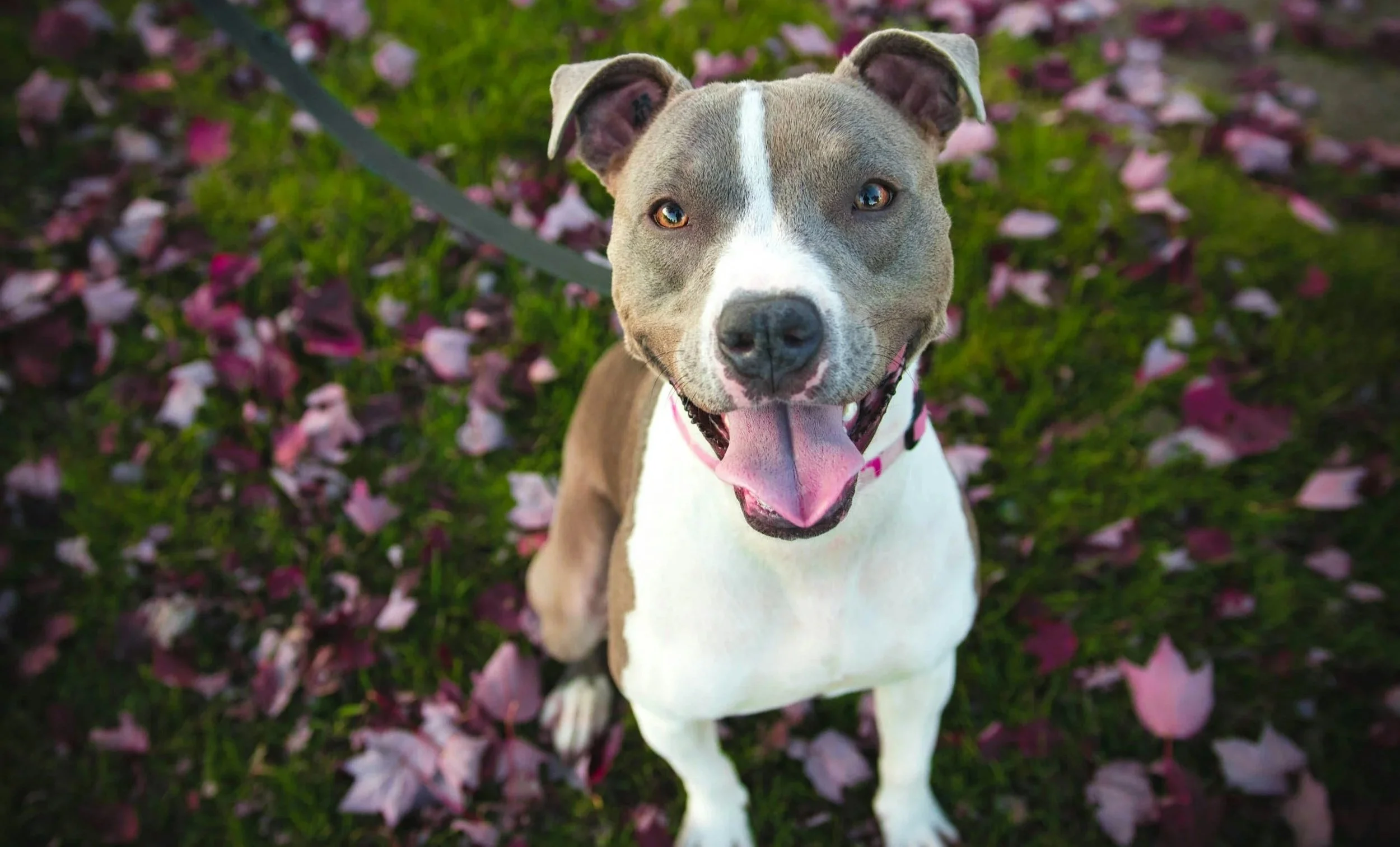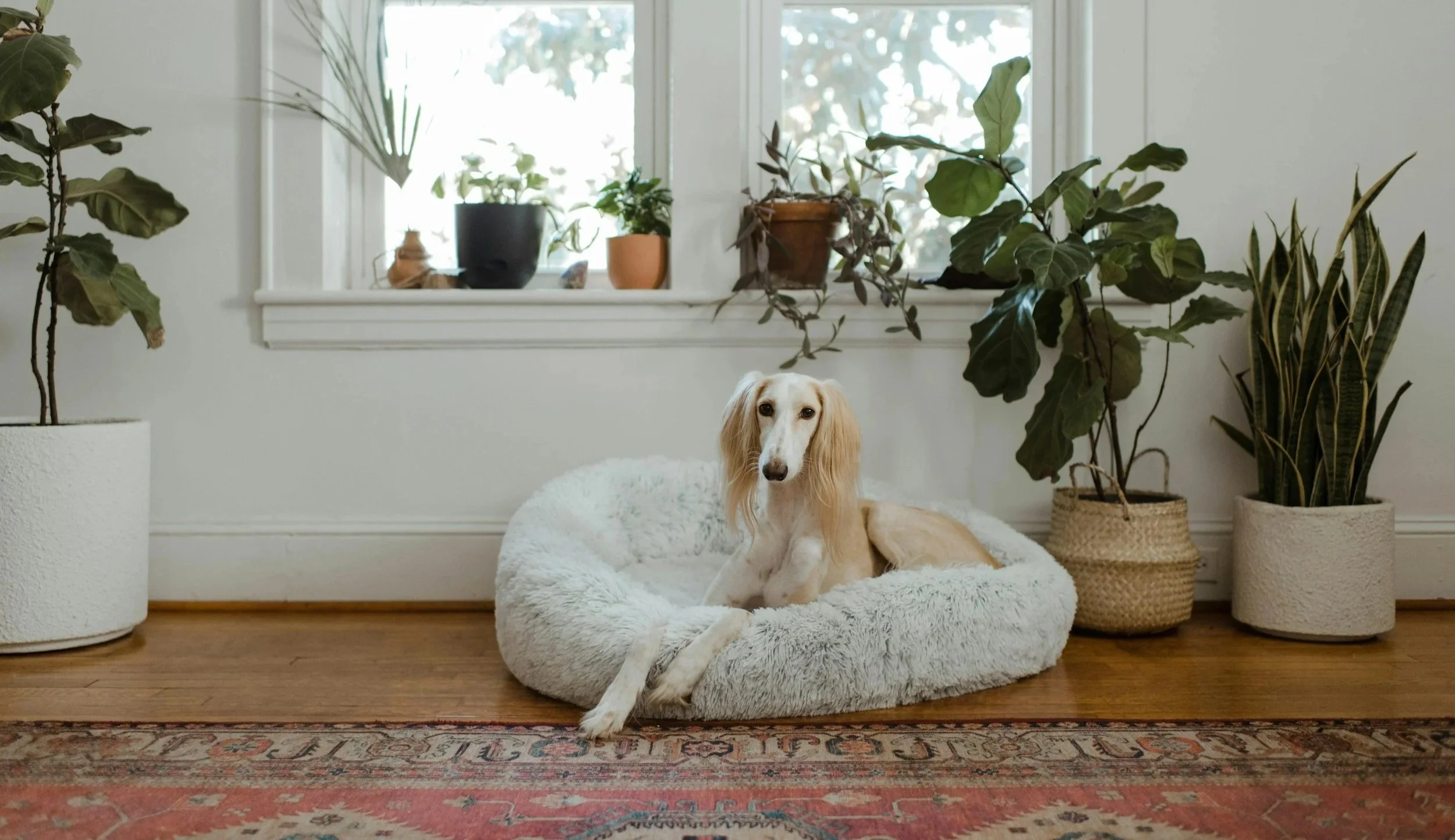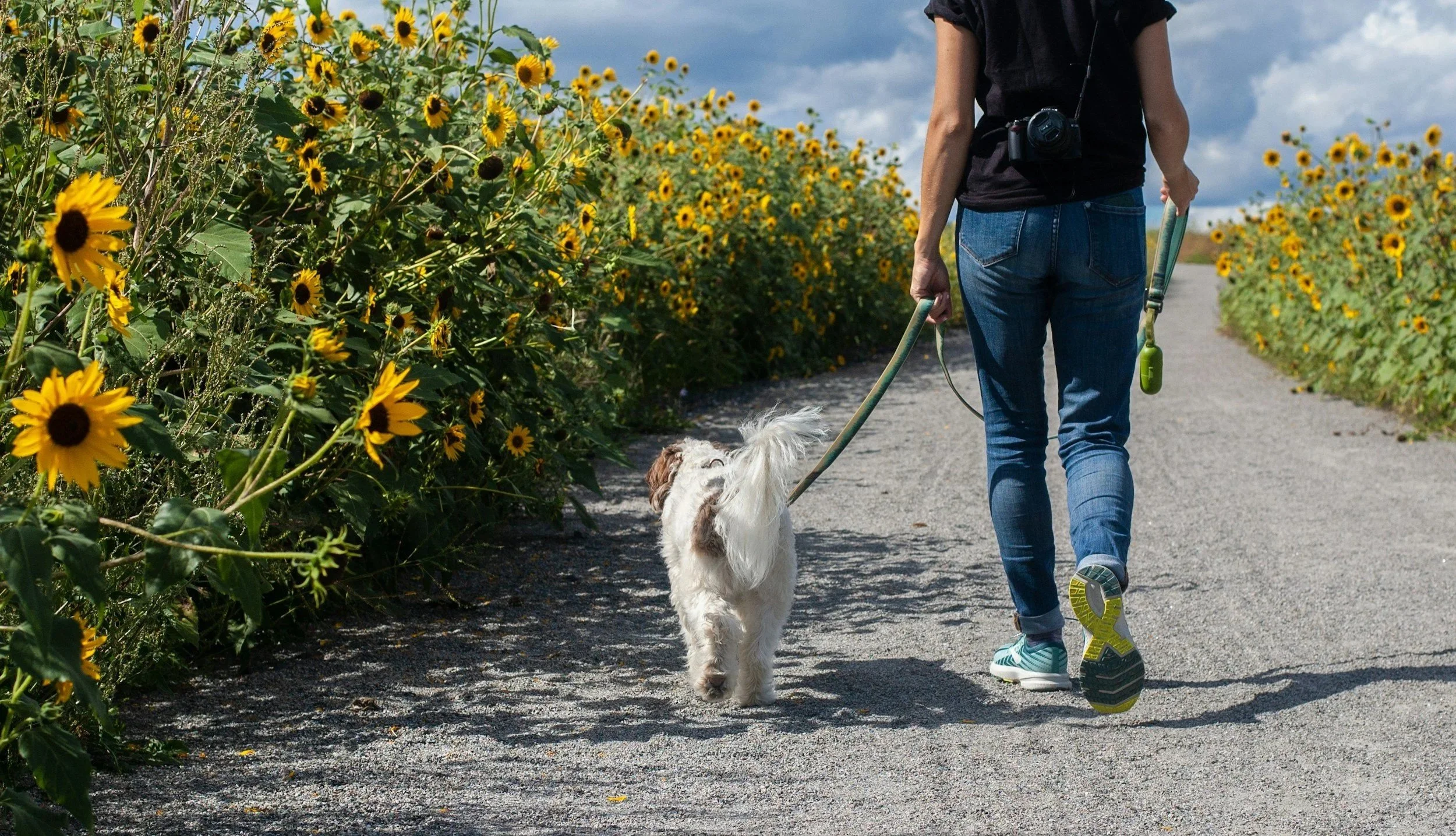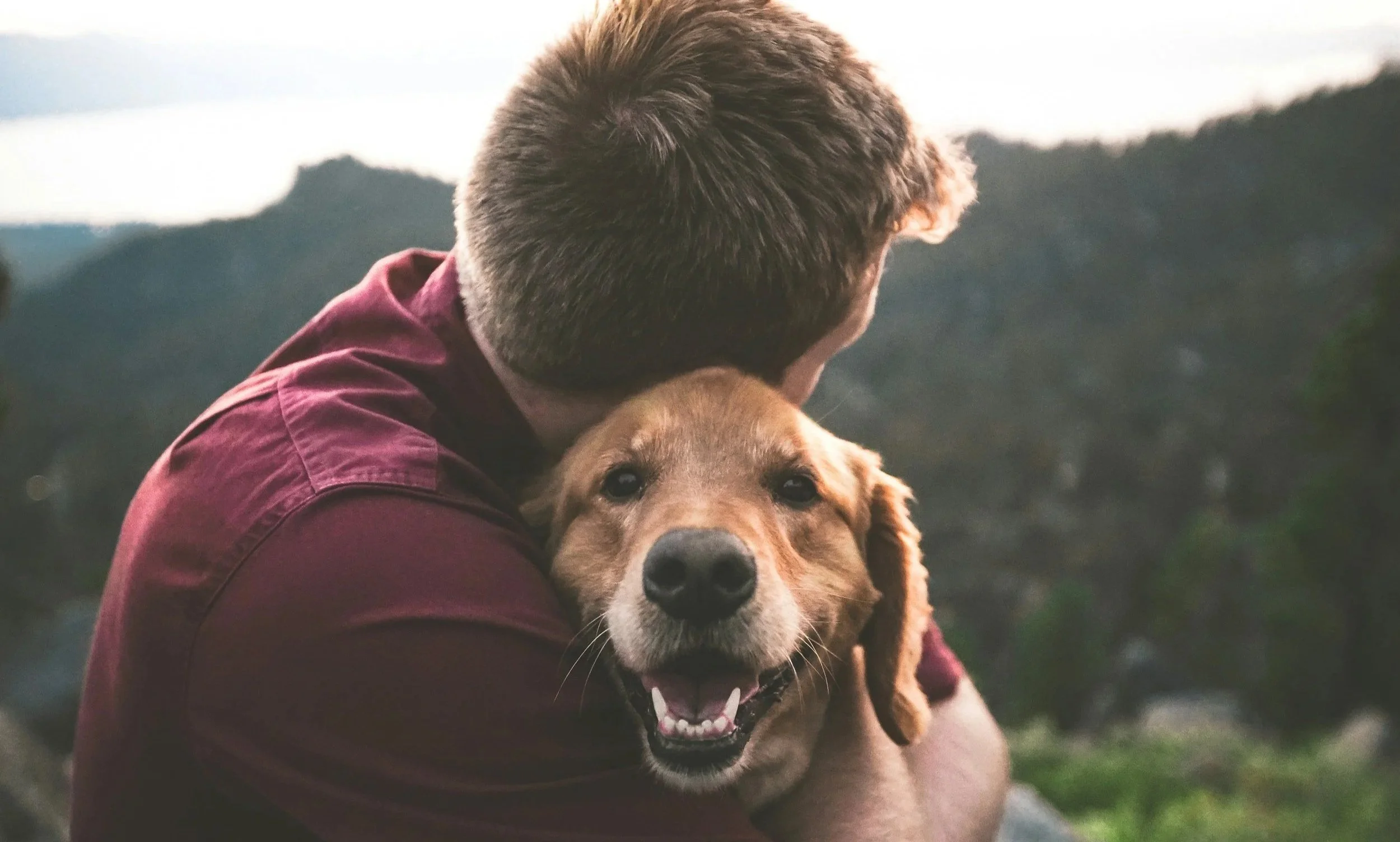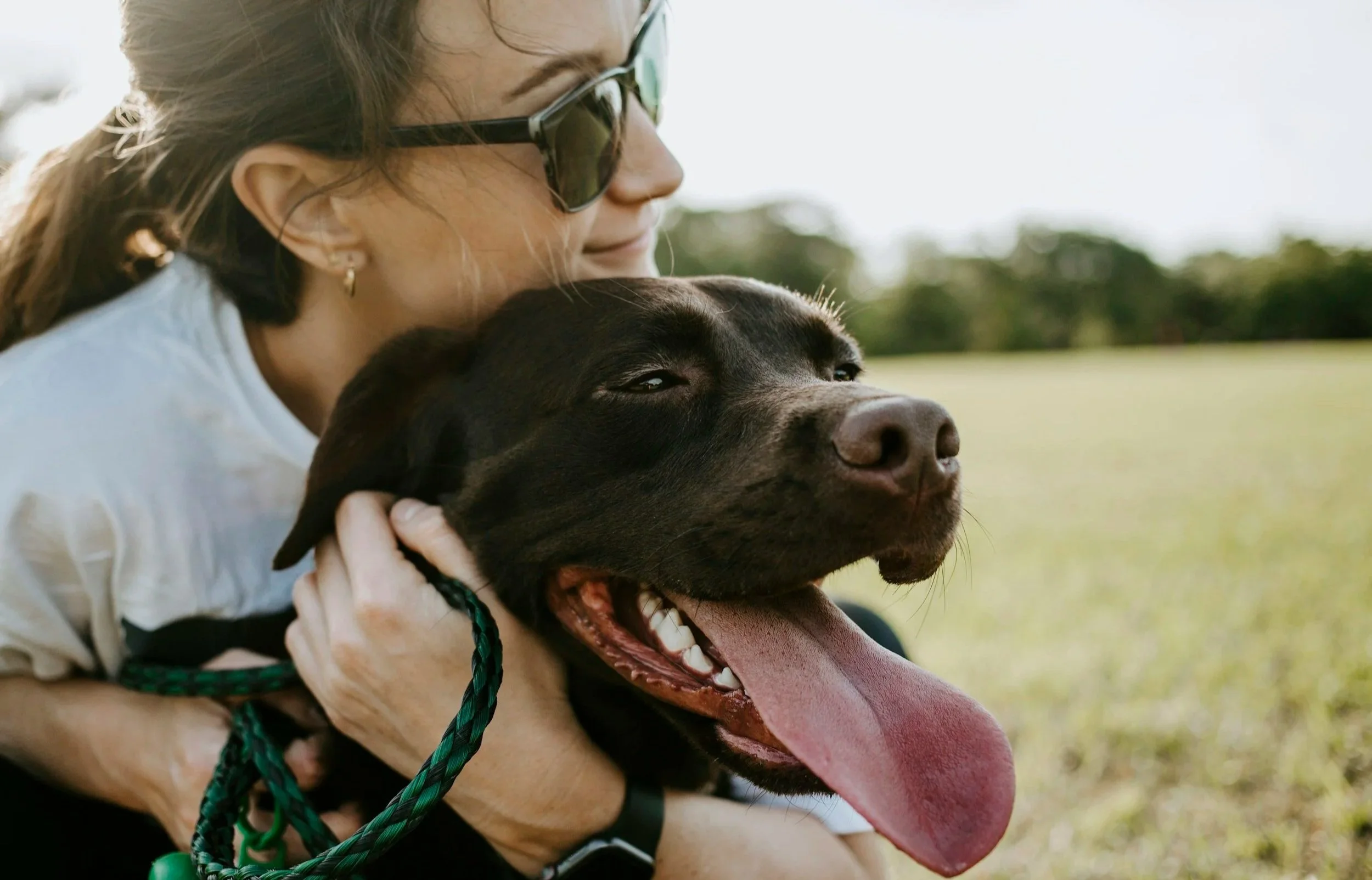by Claire Anderson, CSAP-BC, FDM, CPDT-KA
Adopting an adult dog can be one of the most rewarding decisions you’ll ever make. Unlike puppies, adult dogs often come with some history, which can mean built-in skills, but also unique needs as they adjust to their new environment. With a little planning, patience, and empathy, you can make your dog’s transition smoother and build the foundation for a happy, secure life together.
Why Preparing Matters
Moving into a new home is stressful for any dog. Adult dogs may have left behind a familiar routine, people, or other pets. Setting up a safe, predictable environment shows your new companion they can trust you and feel secure.
1. Preparing Your Home
Think of your home from your new dog’s perspective. What will they see, smell, and hear on day one?
Create a “quiet zone.” Set up a space away from busy foot traffic where your dog can retreat if they’re overwhelmed. This could be a spare room, a crate covered with a light blanket, or a cozy corner with a bed.
Dog-proof your space. Tuck away cords, secure trash cans, and move breakables out of reach. Even adult dogs may chew or explore when stressed.
Stock essentials. Food and water bowls, safe chews, fillable kong-style toys, a comfortable bed, familiar food, quality probiotics, and high-quality treats help your dog feel at home. Check out some of our favorites.
Use familiar scents. If possible, bring an item from their previous environment (a blanket or toy) to comfort them.
Establish safe potty areas. Decide ahead of time where your dog should go to the bathroom and show them consistently.
2. Preparing Your Routine
Structure helps your new dog settle in faster.
Set feeding and potty schedules. Predictability reduces anxiety and helps you learn their signals.
Keep introductions gradual. If you have other pets, children, and friends, start with short, supervised meetings and spread them out to prevent overwhelm.
Plan quiet days at first. Limit visitors and outings during the initial adjustment period.
Exercise and enrichment. Gentle walks, sniffing games, and puzzle feeders give your dog a healthy outlet for energy and stress.
3. Preparing Yourself
Bringing home an adult dog is as much about mindset as it is about supplies.
Patience is key. Even the most social dogs need time to adjust. Expect a decompression period of several days to several weeks.
Watch body language. Learn to spot stress signals like yawning, lip licking, turning away, or crouching. Respond by giving space and reassurance.
Let go of expectations. Your new dog may not act like your previous dog or match the description you read online. Meet them where they are.
Get support early. If you notice behavioral challenges, reach out to a qualified and experienced trainer or behavior consultant. Early guidance prevents problems from snowballing.
Practice self-care. It’s normal to feel overwhelmed. Build in time for yourself so you can show up as your calmest, most consistent self.
4. First Week Tips for Success
Keep walks short and quiet at first, in calm areas if possible.
Feed the same food they’re used to for the first few days, then transition gradually.
Avoid dog parks or chaotic environments until you’ve built trust.
Reward calm behavior generously! Treats, play, and gentle praise go a long way.
5. When to Reach Out for Help
Even with preparation, transitions can be bumpy. If your new dog shows persistent fear, aggression, or withdrawal, reach out to a qualified trainer or behavior consultant right away. At Tully’s Training and Wag & Wonderment, we specialize in helping families and their new dogs navigate this adjustment with confidence and compassion.
Final Thoughts
Adopting an adult dog is a gift for you and for them. By thoughtfully preparing your home and yourself, you’re giving your new companion the best chance to feel safe and loved from day one. With patience, empathy, and expert support, your new dog can truly thrive.
Congratulations on adopting an adult dog! We are so exited for you!


